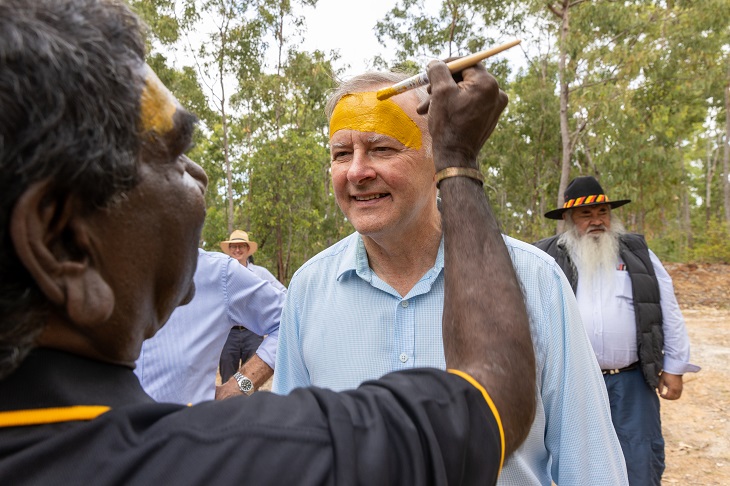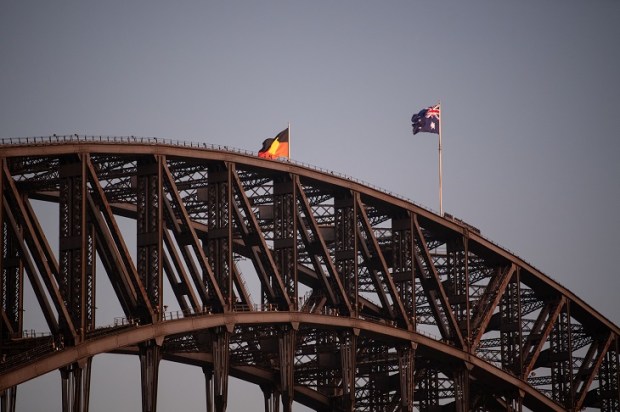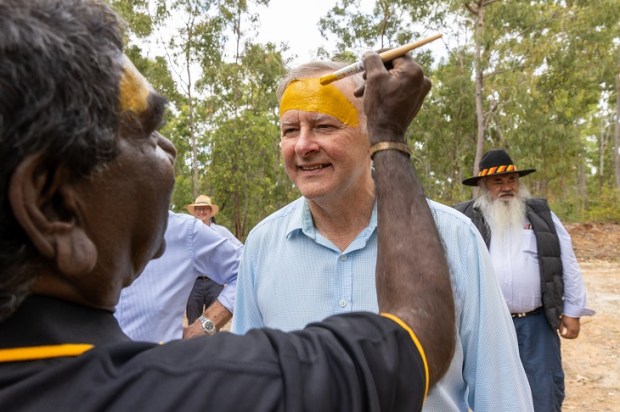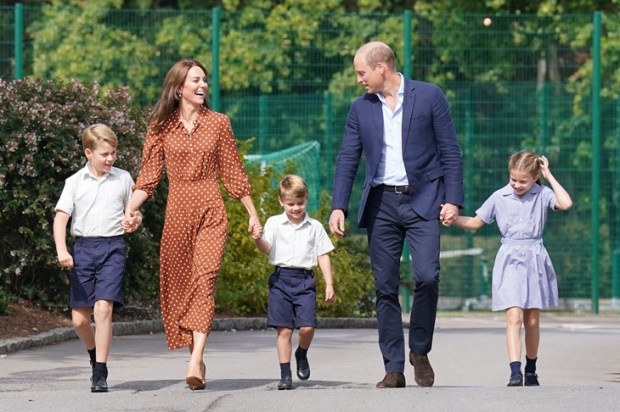Now, here’s a curious thing…
In 1999, the republic referendum cost $66 million. In real terms today, that’s $133 million.
Since 1999, Australia’s population has gone from approximately 18.8 million to 26.3 million, constituting about a 45 per cent increase.
So, then, you might reasonably expect the upcoming Voice referendum to cost 45 per cent more than $133 million; that is, $193 million.
But it doesn’t. It’s costing taxpayers $364.6 million or 174 per cent more in real terms than the 1999 referendum.
And I want to know why.
Could it have something to do with the fact that $12 million over two years is being gifted to the National Indigenous Australians Agency (NIAA) to run ‘neutral public civics education and awareness activities’? Sure, the Museum of Australian Democracy gets a cut too, but the point stands: in the context of a referendum, just how neutral are those activities going to be? After all, $10.6 million is already being spent on the obligatory YES and NO referendum pamphlets distributed to every eligible constituent household. And why two years’ worth of funding? I thought the Voice referendum was supposed to be wrapped up by the end of December?
Could it have something to do with the fact that $10.5 million is being sent to the Department of Health and Aged Care to ‘increase mental health supports for First Nations people during the period of the referendum’?
Could it have something to do with the fact that an additional $5.5 million is being thrown at the NIAA for the purposes of ‘consultation, policy and delivery’? Remember, that’s the same organisation that’s supposed to be conducting ‘neutral’ educational activities.
All the above figures and quotations are taken from the 2023-24 Budget.
But even if you deduct this cumulative $38.6 million from the total, you’re still left with $326 million. That’s $133 million – 69 per cent – more than the $193 million I predict this referendum should cost. Why? Have Australian Electoral Commission employees’ wages increased dramatically? Are we using new and expensive technologies that we didn’t have in 1999?
I don’t know what it is but something just does not feel right about this Voice to Parliament.
I ran the proposed constitutional amendment by a friend of mine totally removed from politics. She read it through and immediately said with a deadpan expression, ‘There’s nothing there that would constitutionally compel the Voice to be comprised of Aboriginal Australians.’ She is, of course, totally right.
Why did the Albanese government feel it needed to ram through amendments to the Referendum (Machinery Provisions) Act 1984 earlier this year? The amendments, among other things, make it much harder for grassroots organisations to involve themselves in referendum campaigns, subjecting them to rigorous financial reporting.
Here’s something else: why is there no Minister for the Voice? After all, Matt Thistlethwaite is the Minister for the Republic despite Mark Dreyfus also being the Attorney-General. If the Voice was always first on the agenda, why not create a supplementary ministry to better facilitate its passage? Why does the republic issue alone receive such attention?
And another thing: whilst Warren Mundine leads the Vote No campaign against the Voice, he simultaneously sits on the Indigenous Advisory Council of the Australian Republic Movement (ARM), of which the ‘first point of business’ is to determine ‘the ARM’s position in relation to the Uluru Statement and its first component, the Voice to Parliament’. Given prominent members of the ARM openly support the full implementation of the Uluru Statement from the Heart, the matter is surely one that needs clarification – with haste.
There are so many questions – and, as Gandalf might have put it, these questions need answers.
In any case, would you buy a car if you’d never test-driven it? Would you make a habit of blindfolding yourself whilst cooking? Would you dial a random number and divulge your secrets to a stranger? So it is of the Voice. If you do not understand how it works, and if you would not take the risk, do not vote for it. Recall Christopher Hitchens’ famous razor: ‘What can be asserted without evidence can also be dismissed without evidence’. It is the responsibility of those advocating for the Voice to explain it in its entirety, omitting no detail and speculating to its every eventuality. The responsibility of Australians, subsequently, is to weigh that absolute explanation and adjudicate the proposition’s merit. What we do know of the proposition – and that really isn’t much – should lead us to conclude that it is bad in both principle and in practise.
There are 76 seats in the Australian Senate, 8 of these seats are occupied by senators who identify as Aboriginal Australians: Dorinda Cox, Patrick Dodson, Jackie Lambie, Kerrynne Liddle, Malarndirri McCarthy, Jacinta Nampijinpa Price, Jana Stewart, and Lidia Thorpe. According to the Australian Bureau of Statistics as of June 2021, 3.8 per cent of the total Australian population is Aboriginal. In 2016, the figure was only 3.3 per cent; a 23.2 per cent increase occurred over the five-year period. Make of that what you will.
Aboriginal Australian senators make up 10.53 per cent of the Australian Senate. If only 3.8 per cent of the total Australian population is Aboriginal, and we were to adhere to the game so often played by bad-faith actors, we would conclude that the Australian Senate is 177.1 per cent over-represented by Aboriginal Australians. It is an over-representation which – and I think I may remark this, as a practising artist in this country – extends farther than just the Senate, but that is a matter for another time.
I have long held, ever since an erudite conversation with one of Australia’s leading choirmasters, that it is not the politician but the system that is representative of the people. The politician leads and serves. His physical traits or his background should be of no consequence when measured against his capacity for sound governance. Some might curse this view as antiquated, but I doubt those same detractors would apply their prejudices to life’s every circumstance. The identity of the stale, pale, male brain surgeon suddenly matters little when the life of a loved one depends upon his abilities. Why is it only in considering those who wield positions of power, or positions of perceived power, that identity begins to matter?
Thus, to judge politicians on their race before their aptitude is totally counterproductive, and so it is patently wrong to claim that without the Voice to Parliament, Aboriginal Australians have no parliamentary voice. They do. They have the same parliamentary voice that I have and that you have. That is the beauty of an egalitarian, liberal democracy: at the ballot box, no one constituent wields more influence than another.
If the Voice passes, that will fundamentally change, and our system will devolve from beauty to ugliness. There is one constitution for us all, and it should make no further prescriptions as to our race, gender, sexuality or any other characteristic. The Australian Constitution is the blueprint for our nation. Why now should we seek to enshrine the concept of race into that blueprint when, for the last 122 years, we have worked so hard to craft a Constitution that is, in pursuit of true liberality, purposely colour-blind?
There is not one nation in recorded human history that has benefited from constitutionally enshrining race as a concept. Nazi Germany and apartheid South Africa immediately leap to mind, as does today’s Malaysia. In Malaysia, a person is only considered to be Malay if they are Muslim; speak Malay regularly; practise Malay customs; and live in or have blood ancestors from Brunei, Malaysia ,or Singapore. And that’s not culturally accepted or even legislated, that’s upheld by Article 160 in the Federal Constitution of Malaysia.
No country benefits from segregating its citizens into racial classes, not economically, socially, psychologically, or geopolitically. Surely, history has taught us that.
If it is currently the case that the majority of Australians support the Voice to Parliament, I do not believe their convictions yet run so deep that they are no longer sympathetic to reason. It befalls us concerned few to publicly reject the manipulative, pseudo-moral advance of bad faith actors. The Voice should not and cannot be judged on its ‘vibe’ as its poster boy-cum-prime minister demands, nor should innocent people tolerate this insidious weaponisation of their compassion. The Voice must be judged on its merits through considered and robust debate. A thorough contest of ideas is foundational to our democracy; the day we stifle debate is the day we lose our freedom, and I am firmly of the opinion that hardworking Australians have a vested interest in ensuring this proposed Voice to Parliament is properly and decisively debated.
The above, then, begins my contribution to that debate.
For some of the reasons I have articulated – and there are others – I am voting against this proposed Voice to Parliament. In so doing, I am not a racist. I am a critic. ‘I judge a man by what I see him do,’ C. S. Forester taught me at a young age; I have judged the Voice on its merits and found it wanting. Incidentally, a close friend of mine is Aboriginal and he agrees; he’ll be voting against the Voice too. To vote against the Voice is not to condone or perpetuate racism. Bad faith actors would have you believe otherwise, but do not succumb to their intimidation. To vote against the Voice is not a racist act. It is, on balance, a responsible act.
I’ll finish, for now, with this: there is a way that Aboriginal Australians can wield 127 per cent more electoral power than they currently do. They can vote. Because, according to a report compiled by the Australian National University, only 44 per cent of eligible Aboriginal Australians voted in the 2022 federal election. 44 per cent is a dismal turnout, and whilst I am sure the reasons for such a rate are varied and nuanced, the fact remains that democratic participation in this nation is a civic obligation.
It’s these accumulating realities which are not being broadcast that really make me feel something about this whole Voice is dangerously off.
Alexander Voltz is a composer. He is a member of the Liberal Party.
Got something to add? Join the discussion and comment below.
Get 10 issues for just $10
Subscribe to The Spectator Australia today for the next 10 magazine issues, plus full online access, for just $10.


























Comments
Don't miss out
Join the conversation with other Spectator Australia readers. Subscribe to leave a comment.
SUBSCRIBEAlready a subscriber? Log in